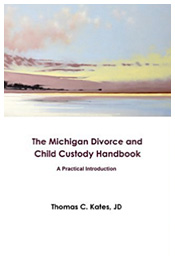Menu
Michigan’s Child Custody Factors and the Best Interests of the Child
The custody investigation, and the ultimate custody determination, are based upon the following “best interests of the child” factors in the Child Custody Act:
(a) The love, affection, and other emotional ties existing between the parties involved and the child.
(b) The capacity and disposition of the parties involved to give the child love, affection, and guidance and the continuation of the education and raising of the child in his or her religion or creed, if any.
(c) The capacity and disposition of the parties involved to provide the child with food, clothing, medical care, or other remedial care recognized and permitted under the laws of this state in place of medical care, and other material needs.
(d) The length of time the child has lived in a stable, satisfactory environment, and the desirability of maintaining continuity.
(e) The permanence, as a family unit, of the existing or proposed custodial home or homes.
(f) The moral fitness of the parties involved.
(g) The mental and physical health of the parties involved.
(h) The home, school, and community record of the child.
(i) The reasonable preference of the child, if the court considers the child to be of sufficient age to express preference.
(j) The willingness and ability of each of the parties to facilitate and encourage a close and continuing parent-child relationship between the child and the other parent or the child and the parents.
(k) Domestic violence, regardless of whether the violence was directed at or witnessed by the child.
(l) Any other factor considered by the court to be of relevance to a particular child custody dispute. (Michigan Compiled Laws sec. 722.23)
At a custody hearing, the judge must listen to testimony of the parties and any witnesses and make findings on the record with respect to each factor, stating whether the parents are equal, or if one or the other prevails. While each factor is important, no single factor is given greater weight than the others, nor does the fact that one parent prevails on more factors than the other necessarily determine the ultimate decision.
Learn More




